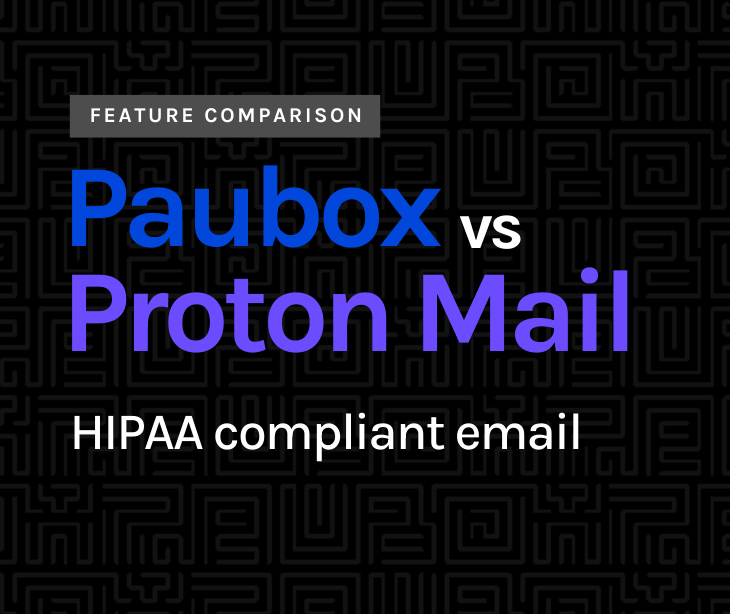2 min read
Using emails to address communication barriers in healthcare
Caitlin Anthoney April 24, 2024

Providers can use HIPAA compliant emails to address communication barriers such as medical jargon, language differences, and cultural nuances, ensuring clarity and accessibility in healthcare communication.
Poor communication leads to poor health outcomes
Health Literacy Solutions explains that poor healthcare communication results in:
- Worse patient self-management, which leads to worse health outcomes.
- Inappropriate use of healthcare services, which leads to costlier, less efficient healthcare.
- Lower patient satisfaction.
Furthermore, it lists 7 barriers to effective communication in healthcare:
1.“Medical words
2. Language differences
3. Cultural differences
4. Disabilities and other challenges
5. Low health literacy
6. Complexity of health topics
7. Lack of time”
Using HIPAA compliant emails to address communication barriers
Breaking down medical jargon
Providers should avoid medical terminology in emails since it can hinder patient comprehension. More specifically, HIPAA compliant emails can facilitate clear and concise communication without complex medical jargon. Providers can email test results, treatment options, or discharge instructions, in plain language, so that patients understand their condition and the recommended course of action.
Bridging language differences
Language barriers can affect healthcare communication, particularly in multicultural environments where patients speak diverse languages.
Healthcare providers can use translation tools or employ multilingual staff to compose emails tailored to diverse linguistic needs. These strategies can help convey medical information accurately while ensuring that it is understood by all parties involved.
Read also: Bridging barriers for immigrant patients with HIPAA compliant emails
Overcoming cultural differences
HIPAA compliant emails can be personalized to accommodate patients' cultural beliefs. For example, a patient may prefer to receive communications in a specific language or may have certain dietary restrictions that need to be considered. By acknowledging these cultural beliefs, healthcare providers can improve patient satisfaction and overall care outcomes.
Addressing disabilities and other challenges
Providers can use email features like screen readers or large font sizes to ensure that patients with visual or hearing impairments can access healthcare information effectively. Additionally, a two-way communication platform, like Paubox, can help patients communicate their specific needs, allowing providers to deliver personalized care.
Go deeper: Accessibility and readability best practices for healthcare emails
Promoting health literacy
Providers can use HIPAA compliant emails to promote health literacy by delivering clear, concise, and actionable information to help patients make informed decisions about their health. More specifically, providers can email educational resources, health tips, and wellness initiatives, equipping patients with the knowledge and skills they need to manage their health effectively.
Simplifying complex health topics
Providers can use HIPAA compliant emails to simply explain medical procedures, discuss treatment plans, or provide follow-up instructions. For example, a provider can guide patients through an upcoming surgical procedure, ensuring they understand what to expect and how to prepare.
Maximizing time efficiency
Emails allow providers to communicate with patients promptly without face-to-face interactions. It also helps providers convey information quickly and conveniently. For example, a provider can share relevant patient updates with their colleagues for improved continuity of care.
FAQs
Are standard emails secure for discussing sensitive healthcare information?
No, standard emails do not provide the necessary encryption to protect sensitive healthcare information from potential breaches. So, providers must use a HIPAA compliant email platform, like Paubox, to safeguard patients' protected health information (PHI) during transmission and at rest.
Do emails improve collaboration among healthcare providers?
Yes, HIPAA compliant emails can facilitate interdisciplinary discussions, consultations, and knowledge exchange among healthcare providers, promoting collaboration and enhancing clinical decision-making.
Read also: An approach to shared decision-making using HIPAA compliant email
Can providers email patients with disabilities?
Yes, emails can be tailored to accommodate diverse needs and abilities, using features like screen readers and alternative text to ensure accessibility for patients with disabilities.
Read also: Email for mental healthcare access in people with disabilities
Subscribe to Paubox Weekly
Every Friday we'll bring you the most important news from Paubox. Our aim is to make you smarter, faster.




